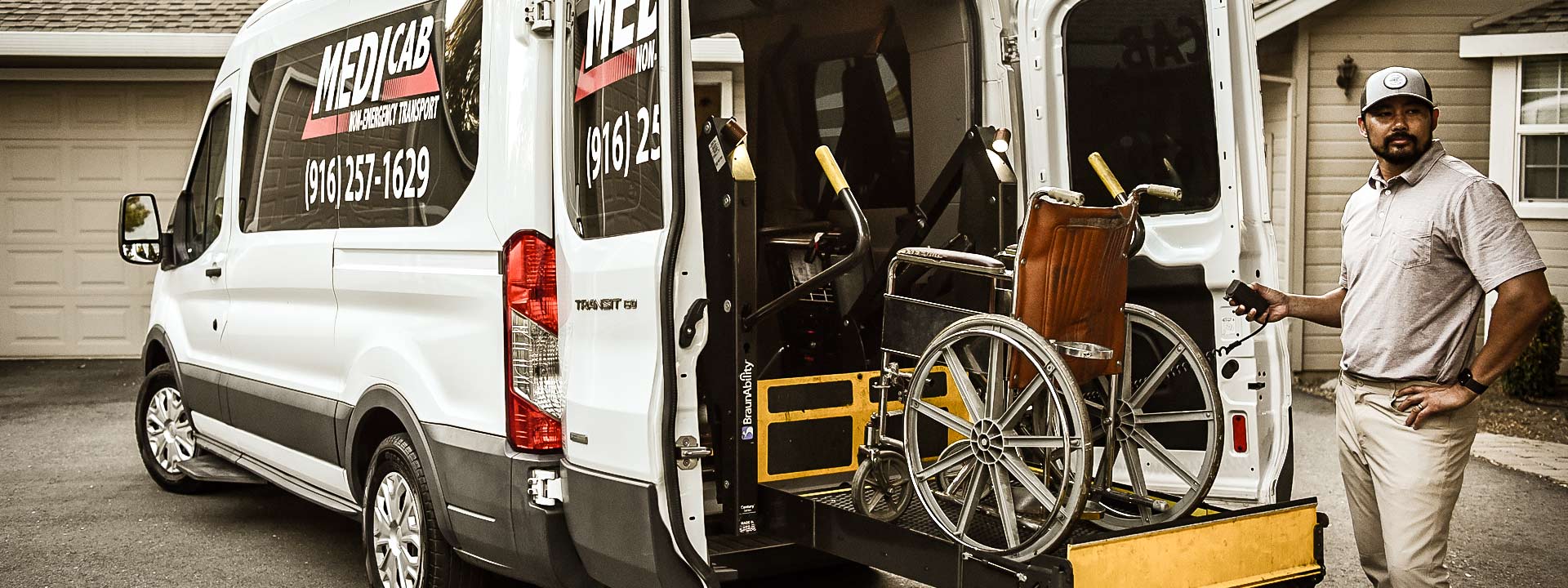Improve Accessibility with Expert Medical Transportation Services Near Me
Improve Accessibility with Expert Medical Transportation Services Near Me
Blog Article
Obtainable and Affordable Medical Transportation Options for Seamless Health Assistance
In the realm of healthcare, the ease of access and price of clinical transportation are critical in making sure individuals can access the care they require when they need it. The capacity to flawlessly navigate transport options can dramatically influence a person's capability to obtain timely clinical attention, follow-up treatment, and general health. From non-emergency medical transport solutions to ingenious remedies like telehealth, the landscape of medical transport is progressing to fulfill the diverse requirements of people. Thinking about the relevance of this aspect in medical care delivery, exploring the variety of alternatives offered becomes necessary for addressing spaces in access and affordability.
Non-Emergency Medical Transportation Solutions

These solutions are staffed by experienced specialists that prioritize patient comfort and security during transit. Motorists are furnished to take care of people with differing clinical demands and make certain that all trips are smooth and worry-free - Medical Transportation Services Near Me. Additionally, non-emergency medical transportation services frequently use specific automobiles that are wheelchair-accessible, making them appropriate for a wide variety of individuals with different wheelchair requirements
Volunteer Chauffeur Programs
Volunteer chauffeur programs contribute in providing transport aid for people in demand of non-urgent healthcare. These programs count on the generosity of volunteers who contribute their time and automobiles to assist transport patients to and from clinical visits. By utilizing volunteer drivers, organizations can provide an economical service for individuals that may not have accessibility to trusted transport.
One of the key advantages of volunteer chauffeur programs is the personalized treatment and focus that individuals get. Unlike traditional transport solutions, volunteer motorists frequently establish a connection with the people they help, producing a thoughtful and supportive setting during what can be a demanding time. Additionally, volunteer vehicle driver programs can assist connect the void for individuals residing in underserved or rural locations where public transport choices might be limited.
Public Transport Options

One of the vital advantages of public transport is its widespread accessibility in rural and city areas alike. This considerable network allows individuals from varied histories to take a trip to medical appointments with family member ease. In addition, mass transit systems are usually furnished to accommodate people with specials needs, offering obtainable traveling options for those with wheelchair challenges.

Ride-Sharing and Transport Network Firms
The development of contemporary transport alternatives for medical functions expands past typical public systems like buses and trains to include the innovative world of ride-sharing and transport network companies. Ride-sharing services such as Uber and Lyft have reinvented the means individuals travel to medical visits, providing benefit and flexibility to individuals that might not have access to their lorries or typical public transport. These systems permit individuals to request an experience with the touch of a switch on their smart devices, providing door-to-door solution that can be particularly beneficial for individuals with movement challenges or those requiring help.
Transportation network companies (TNCs) have also played a significant role in connecting the space in clinical transportation services. Business like Veyo and RoundTrip concentrate on non-emergency clinical transport, dealing with patients who require a site here greater degree of support during their journeys to medical facilities. By partnering with health care providers and insurance companies, TNCs make sure that people can access trusted and timely transportation services, ultimately adding to boosted wellness results and individual contentment.
Telehealth and Digital Assessments
Enhancing health care accessibility and comfort, telehealth and digital consultations have actually become pivotal elements in modern-day clinical techniques, transforming the method clients interact with medical care carriers. Telehealth leverages innovation to promote remote communication in between patients and health care specialists, using a vast range of solutions such as online appointments, remote tracking, and electronic prescriptions. Virtual consultations make it possible for people to look for medical advice, diagnosis, and treatment from the comfort of their homes, getting rid of the demand for physical check outs to medical care facilities. This approach not just saves time and lowers transportation prices for individuals yet likewise improves the general efficiency of medical care delivery.
Additionally, telehealth plays a vital function in extending medical solutions to underserved communities, backwoods, and people with minimal wheelchair. By breaking down geographical obstacles and increasing healthcare outreach, telehealth advertises very early treatment, continuity of care, and person interaction. As innovation remains to development, telehealth is positioned to play a progressively considerable duty in forming the future of healthcare distribution, promoting improved health and wellness results and patient contentment.
Final Thought

From non-emergency clinical transportation services to innovative remedies like telehealth, the landscape of medical transportation is evolving to satisfy the varied requirements of people.Non-Emergency Medical Transport Solutions help with the prompt click for more and secure transportation of individuals requiring non-urgent medical treatment to and from medical care centers.The advancement of contemporary transportation alternatives for medical objectives extends past conventional public systems like buses and trains to encompass the cutting-edge world of ride-sharing and transport network firms.Transport network firms (TNCs) have likewise played a substantial role in bridging the gap in clinical transport services. Non-Emergency Medical Transportation Providers, Volunteer Motorist Programs, Public Transport Options, Ride-Sharing and Transport Network Firms, and Telehealth and Virtual Consultations all play an important function in dealing with transport obstacles to medical care accessibility.
Report this page